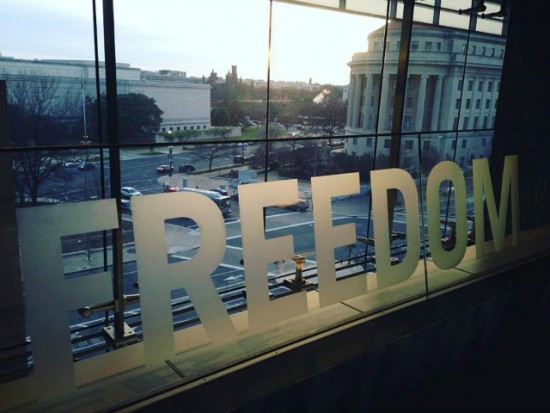Democracy Declining in Balkans, Warns Freedom House
Democracy declined in the Balkan region for the sixth year in a row, as strongman leaders took nearly unchallenged control of state institutions in several countries, a new Freedom House report claims.
After substantial progress from 2004 to 2010, democracy in the Balkans has declined for six years according to US-based NGO Freedom House’s annual report on democracy in Central and Eastern Europe and Eurasia, which was published on Tuesday.
“With the exception of Albania, the scores of all the [Balkan region’s] EU candidates and potential candidates are declining, not improving, which is a disturbing indicator of their level of commitment to EU standards,” the ‘Nations in Transit 2016’ report says. The leaders of Serbia, Macedonia, and Montenegro have turned the EU’s disarray to their advantage, trusting that its desire for stability will outweigh clear evidence of individual politicians and parties taking control of state institutions to promote their own interests, according to the report.
In Macedonia, Montenegro and Serbia, “political strongmen” have been pressing the EU to overlook their bad behavior by arguing that there is no better choice, it says. In Macedonia, the ruling party’s overreach led to massive corruption and election-rigging scandals in 2015 and a continuing political crisis, it argues.
The EU expended huge amounts of political capital in 2015 to bring the Macedonian government to the table with the opposition and to broker early elections. But after conceding to an agreement in the summer of 2015, the ruling party stalled investigations and reforms that were needed to make the early elections free and fair, the report alleges. Despite allegations of vote rigging, corruption, and fraud that prompted Macedonia’s largest protests in years, former Prime Minister Nikola Gruevski has stalled implementation of the EU-brokered reform deal and appears likely to return to power at the early elections scheduled for June, it suggests.
In Serbia, right-wing Prime Minister Aleksandar Vucic successfully opened accession negotiations with the EU even as he accused Brussels of funding investigative journalists to undermine him, according to Freedom House. Vucic was able to argue that only he can keep more radical nationalists in check, so the EU was loath to challenge him when he denounced its support for independent media, while cooperation on managing refugee and migrant flows has given the Serbian premier additional negotiating power in Brussels, the report suggests.
In Bosnia and Herzegovina and Kosovo, state-building has reached an impasse, Freedom House argues. Governmental structures built to keep the peace in both countries are preventing progress, and political and economic stagnation are fuelling popular frustration, the report says. The 1995 Dayton peace agreement ended the war in Bosnia, but put in place an excruciatingly complex political system that has crippled the state and led to the hardening of ethnic divisions, it adds. “The country operates as a set of ethnic fiefdoms, and one of its entities, the Republika Srpska, squarely rejects the legitimacy of national institutions,” it says.
While the ‘Brussels dialogue’ between Pristina and Belgrade has made some progress, the results are increasingly unpopular inside Kosovo and the issue is now distracting attention from much-needed reforms, particularly those related to fighting corruption, the report says. Montenegro opened six new chapters in its EU accession negotiations and has received a formal invitation to join NATO, but is also mired in corruption under Prime Minister Milo Djukanovic, who has run the country in and out of office since 1991, according to Freedom House.
The Montenegrin government made no progress in 2015 towards genuine independence for anti-corruption bodies or transparency in public procurement, the report says. Opposition forces with a mixture of right-wing and good-governance agendas tried to challenge Djukanovic through protests in the second half of the year, but they were unsuccessful, it adds.
The report concludes that durable peace in the Balkans is not a small achievement, but peace without progress has led to potentially dangerous stagnation. “A sustainable solution will require the [EU] to prioritise media independence, rule of law, and good governance within these countries over any short-term geopolitical objective,” it says. The report warns that European border closures intended to prevent migrants from reaching the EU along the Balkans route could additionally jeopardise the prospects for long-term reforms in the region. “The migration crisis should not become an excuse to isolate the Balkans from the rest of Europe,” said Nate Schenkkan, project director of ‘Nations in Transit’. “With youth unemployment above 50 per cent in much of the region, turning the Balkans into an island inside Europe would be catastrophic for the region’s development. The EU should not privilege short-term stability over long-term reform in the Balkans,” Schenkkan added.
12 April 2016

